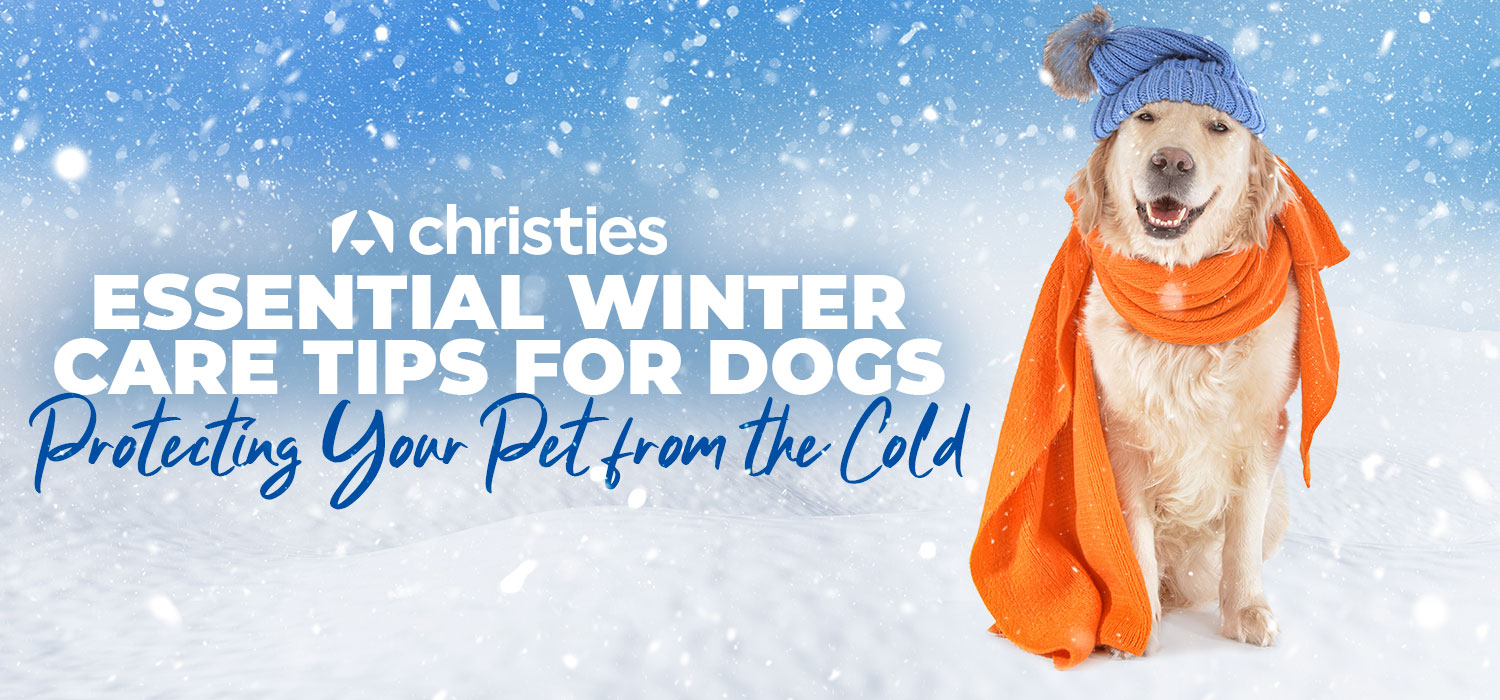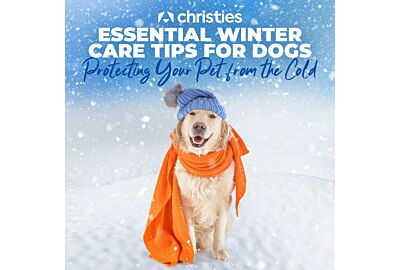

Caring for your dog during the cold winter months involves special considerations to ensure their safety, comfort, and health. Here's an informative guide for pet owners:
Understand Your Dog’s Cold Tolerance: Different breeds have varying tolerances to cold. Thick-coated breeds like Huskies and Bernese Mountain Dogs are more cold-tolerant, while short-haired breeds like Greyhounds need extra protection in winter.
Provide Adequate Shelter: If your dog spends a lot of time outdoors, ensure they have a warm, dry, and draft-free shelter. The shelter should be large enough for them to move around but small enough to retain body heat.
Adjust Food and Water: Dogs may need more calories in the winter to keep warm. Ensure their diet is adjusted accordingly, and always provide unfrozen water. Use plastic food and water bowls instead of metal to prevent their tongue from sticking to the cold surface.
Protect Their Paws: Ice, snow, and salt can cause paw irritation. Use dog booties or a protective balm on their paws before going outside. Check and clean their paws after walks to remove any ice or de-icing chemicals.
Beware of Antifreeze: Antifreeze is lethal for dogs, yet it has a sweet taste that may attract them. Clean up any spills and store antifreeze out of reach.
Avoid Ice When Walking: Be cautious of frozen lakes or ponds, as dogs can easily fall through thin ice. Stick to cleared paths for walks.
Consider a Dog Coat: Dogs with thin coats may benefit from a warm dog sweater or coat, especially when they are outside for extended periods.
Watch for Signs of Hypothermia: Shivering, lethargy, and weakness are signs of hypothermia. If you notice these symptoms, bring your dog into a warm environment immediately and contact your vet.
Keep Them Active Indoors: When it’s too cold outside, engage your dog in indoor activities to ensure they get enough exercise.
Regular Vet Check-ups: Winter can exacerbate certain health issues like arthritis. Regular veterinary check-ups are important to manage any existing health conditions.
By following these guidelines, you can help your furry friend enjoy the winter months safely and comfortably. Remember, if it's too cold for you, it's probably too cold for your dog, so keep outdoor trips short during extreme temperatures.







